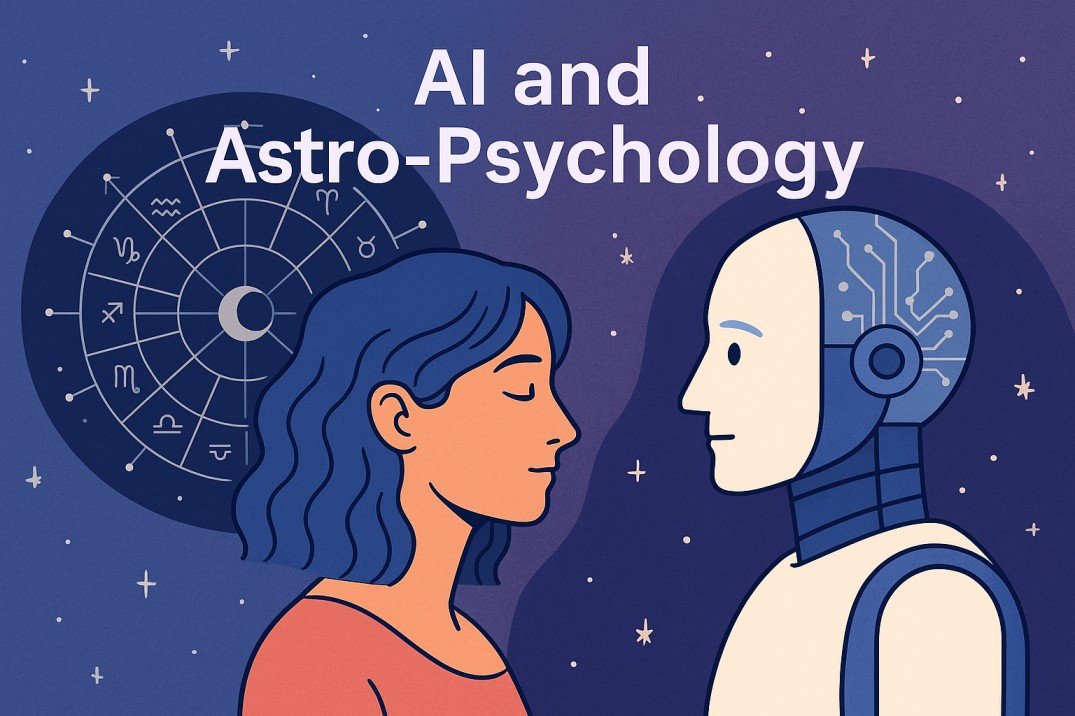


In recent years, the convergence of Artificial Intelligence and psychology has brought profound changes to mental wellness, behavior analysis, and even predictive therapy. Simultaneously, astrology continues to captivate millions with its age-old wisdom about personality, destiny, and emotional dynamics. But what happens when we merge these two fields with the power of AI? Welcome to the transformative realm of AI and Astro-Psychology—a hybrid discipline combining planetary influence with emotional intelligence.
Could algorithms truly understand your moods based on celestial movements? Could your birth chart inform digital emotional therapy? Let’s uncover how this unique synergy is quietly shaping the future of inner wellness.
Astro-psychology is an integrative practice that blends astrology with principles of modern psychology. It goes beyond basic sun sign horoscopes and delves into the emotional, cognitive, and behavioral implications of planetary placements in your natal chart.
Where traditional astrology might say, “You are a Cancer, so you’re emotional,” astro-psychology would go further, exploring why you’re emotionally reactive—maybe due to a Moon-Pluto conjunction or a Venus in retrograde influencing your relational patterns. This deeper approach has long appealed to those seeking both spiritual insight and psychological growth.
Now, imagine this already insightful discipline powered by AI. With algorithms capable of analyzing massive datasets and detecting subtle patterns, AI doesn’t just interpret your chart—it learns from it, evolves, and tailors its guidance in real time.
Natural Language Processing (NLP): Helps AI communicate insights clearly and compassionately.
Machine Learning: Learns from your emotional inputs and behavioral data to refine advice.
Astrological Databases: Access to historical planetary influences linked to emotional trends.
Sentiment Analysis: Detects emotional tone from your responses and digital behavior.
Neuro-symbolic AI: Combines logic (rules of astrology) with emotional recognition (psychological feedback).
Together, these create a digital mirror of your emotional landscape, guided by the stars.
An AI engine analyzes your birth chart alongside personality assessments (like MBTI or Big Five). Instead of giving you generic astro advice, it uses psychological profiling to offer insights tailored to your emotional and cognitive makeup.
Example: Instead of saying, “Your Mars is in Aries, so you’re aggressive,” it might say, “Your Mars in Aries suggests quick emotional triggers—based on your introverted personality and current Moon transit, try journaling before reacting.”
AI can map your emotional highs and lows based on historical transit data and real-time planetary movements. Combined with your journaling, messages, or even health wearable data, the system begins predicting how you may feel in upcoming weeks—and why.
These bots go beyond daily horoscopes. They understand your birth chart, track your transits, and offer real-time therapeutic support like:
Cognitive Behavioral prompts
Breathing exercises during tense Mars squares
Reflection questions on Mercury retrograde days
Affirmations based on your Sun-Moon dynamic
These chatbots, powered by NLP and astrology-informed databases, act like emotional guides encoded with cosmic intelligence.
Modern apps now sync astrological cycles with:
Mood journaling
Anxiety trackers
Emotional resilience scores
Sleep patterns
For instance, during a Saturn return (typically linked with emotional crises), the AI may recommend less social exposure, self-reflection activities, and even preemptively suggest therapy check-ins.
By blending natal data, psychology, and user behavior, AI delivers uniquely relevant emotional insights.
AI systems can predict emotional turbulence before it fully manifests, offering coping strategies preemptively.
Unlike human therapy, AI chatbots offer constant, non-judgmental, private support, ideal for introverted users.
These tools bring emotional support to millions who lack access to traditional therapists or astrologers.
As you grow and evolve emotionally, the system learns alongside you—adjusting its suggestions over time.
While powerful, AI-Astro Psychology has its challenges.
AI can process feelings, but it does not feel. The soulful, intuitive touch of a human counselor or astrologer is irreplaceable.
These tools often require sensitive birth data, psychological responses, and biometric info. Data security is critical.
While advanced, AI is not immune to offering occasionally bland or mismatched advice—especially if users don’t input consistent feedback.
Users might become dependent on algorithmic suggestions, losing trust in their own intuition or spiritual path.
These platforms demonstrate how seamlessly technology and spirituality can co-exist when crafted with care.
As the field matures, expect to see innovations like:
Emotion-Synced Wearables: Your bracelet or watch will track heart rate + astrological stress indicators.
Augmented Reality Counseling: Real-time aura + chart overlays during emotional check-ins.
Spiritual AI Coaches: Personalized long-term guidance systems combining past life astrology with emotional development plans.
Group Compatibility Algorithms: Teams, families, or even communities matched astrologically and psychologically for harmony.
This could usher in a new age of “conscious tech”—tools not just smart, but spiritually aligned.
Artificial Intelligence may never meditate, cry, or feel heartbreak. Yet, when infused with the cosmic wisdom of astrology and the insight of psychology, it becomes something remarkable: a mirror to your emotional universe.
AI in astro-psychology isn’t about replacing the human heart—it’s about empowering it. It offers tools that help us understand why we feel what we feel, when we feel it, and how to channel it better. For some, this might be a stepping stone to deeper therapy. For others, it could be a spiritual awakening—guided by stars and coded in lines of light.
In this digital age, we don’t have to choose between ancient wisdom and modern intelligence.
We can have both.
And in that balance, perhaps, lies true emotional clarity.